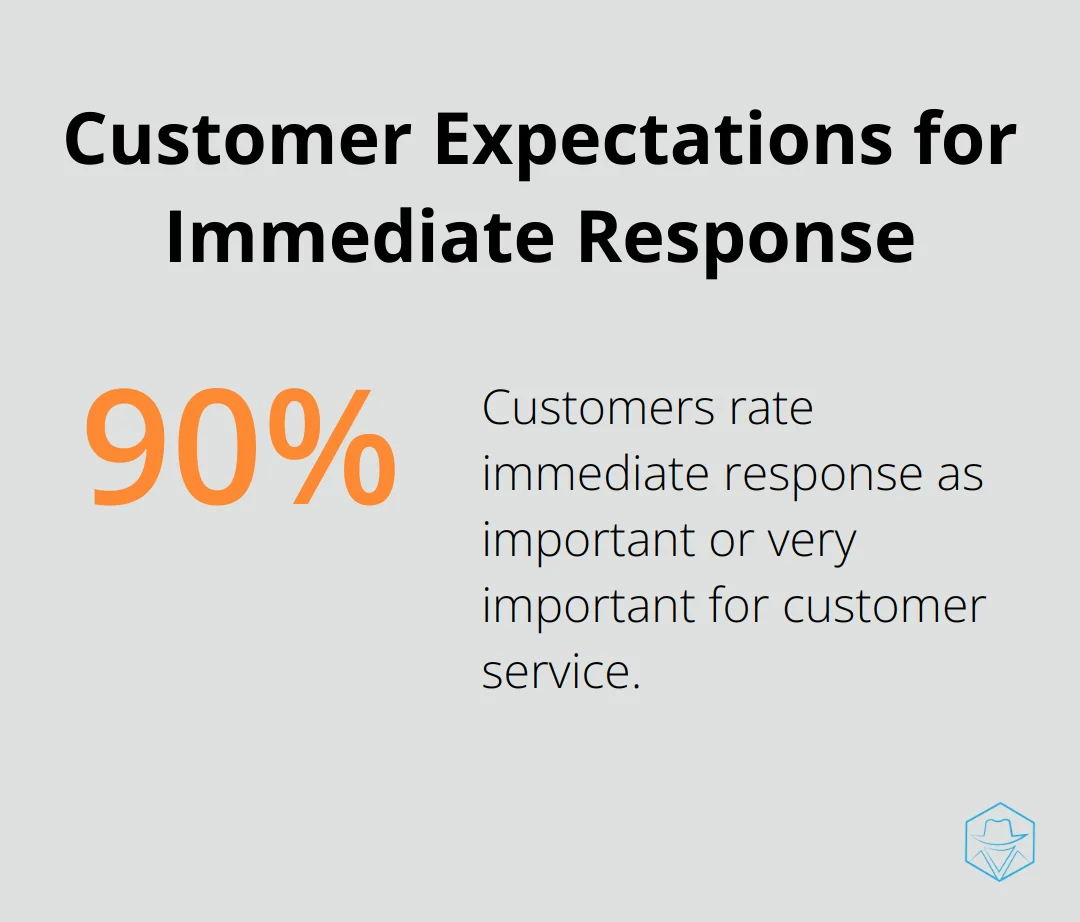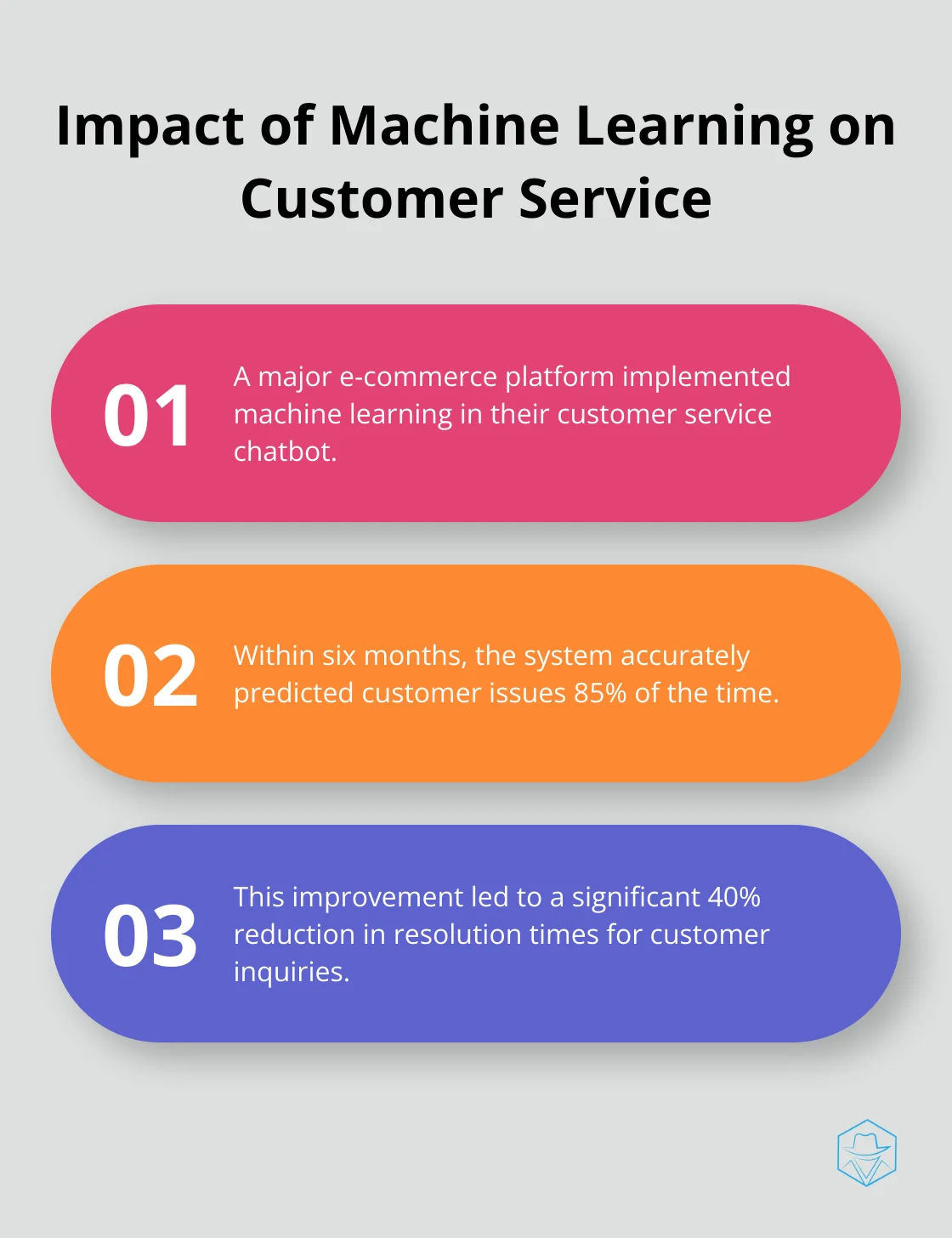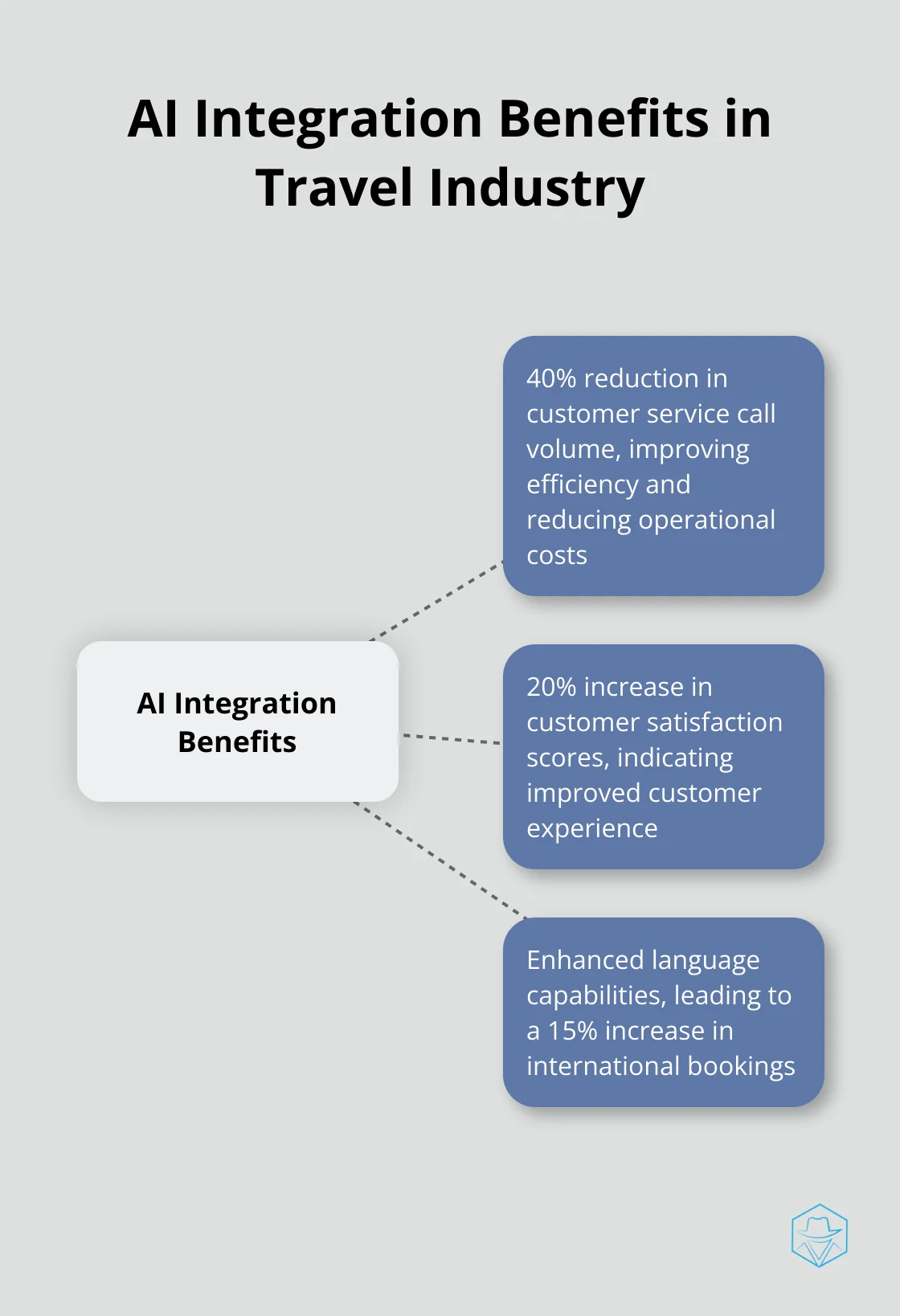The Rise of AI in Messaging How It’s Changing the Game

AI messaging is transforming the way businesses communicate with their customers. At Drop Cowboy, we’ve witnessed firsthand how this technology is reshaping the landscape of customer interactions.
From chatbots to voice assistants, AI-powered messaging solutions are revolutionizing response times, personalization, and efficiency. In this post, we’ll explore the key technologies driving this change and showcase real-world applications that are setting new standards in customer communication.
How AI Transforms Messaging
Personalization at Scale
AI revolutionizes the way businesses communicate with their customers. This technology enables companies to personalize messages for thousands of customers simultaneously. Previously, this level of personalization required a massive team of customer service representatives. Now, AI analyzes customer data, purchase history, and behavior patterns to create tailored messages that resonate with each individual.
An e-commerce company (using AI-powered messaging) saw a 35% increase in click-through rates when they personalized product recommendations based on each customer’s browsing history. This level of personalization leads to higher engagement and, ultimately, more sales.
Lightning-Fast Response Times
One of the most significant advantages of AI in messaging is its ability to provide instant responses. While human agents typically take several minutes to respond to a customer inquiry, AI replies in milliseconds. This speed is essential in today’s fast-paced world where customers expect immediate attention.
A study by HubSpot found that 90% of customers rate an “immediate” response as important or very important when they have a customer service question. AI-powered chatbots provide this immediate response, improving customer satisfaction and reducing the workload on human agents.

Cost-Effective Customer Service
Implementing AI in messaging can significantly reduce operational costs for businesses. A report by Juniper Research predicts that chatbots will save businesses $8 billion per year by 2025. This cost savings comes from reducing the number of human agents needed to handle customer inquiries and increasing the efficiency of existing staff.
Proactive Customer Engagement
AI doesn’t just react to customer inquiries – it proactively engages customers at the right time with the right message. By analyzing customer behavior and preferences, AI triggers messages that are likely to resonate with the customer and drive desired actions.
A retail company using AI-powered messaging saw a 25% increase in sales when they implemented proactive messaging for cart abandonment. The AI system identified when a customer left items in their cart and sent a personalized message (with a small discount), encouraging the customer to complete their purchase.
24/7 Availability
AI-powered messaging systems never sleep, providing round-the-clock customer service. This constant availability ensures that customers receive support whenever they need it, regardless of time zones or holidays. The ability to offer 24/7 support without increasing staffing costs is a game-changer for many businesses, especially those operating globally.
As we explore the key AI technologies driving these transformations, it becomes clear that the future of messaging is intrinsically linked to artificial intelligence.
AI Technologies Powering Modern Messaging
Natural Language Processing (NLP)
Natural Language Processing (NLP) stands at the core of AI-powered messaging. This technology enables machines to understand, interpret, and generate human language. In messaging applications, NLP allows chatbots and virtual assistants to comprehend user queries and respond appropriately.
A Gartner study predicts that 50% of knowledge workers will use a virtual assistant daily by 2025 (up from 2% in 2019). This significant increase underscores NLP’s growing importance in business communication.
Machine Learning Algorithms
Machine Learning algorithms improve messaging experiences over time. These algorithms analyze vast amounts of data from past interactions to predict user behavior and preferences. This analysis enables businesses to tailor their messaging strategies for maximum impact.
A major e-commerce platform implemented machine learning in their customer service chatbot. Within six months, the system accurately predicted customer issues 85% of the time, reducing resolution times by 40%.

Voice Technology Integration
Voice recognition and synthesis technologies transform how we interact with messaging platforms. These technologies enable voice-to-text and text-to-voice conversions, making messaging more accessible and convenient.
A Juniper Research report projects 8 billion digital voice assistants in use by 2023 (up from 2.5 billion at the end of 2018). This explosive growth highlights the importance of integrating voice technology into messaging strategies.
Sentiment Analysis
AI-powered sentiment analysis tools help businesses understand the emotional tone behind customer messages. This insight allows companies to respond more empathetically and address potential issues before they escalate.
For example, a telecommunications company using sentiment analysis in their customer service messaging saw a 20% increase in customer satisfaction scores within three months of implementation.
Predictive Analytics
Predictive analytics uses historical data to forecast future trends and behaviors. In messaging, this technology helps businesses anticipate customer needs and proactively address them.
A retail chain implemented predictive analytics in their messaging system. They saw a 30% increase in customer retention rates by sending personalized voice messages based on predicted purchase behavior.
The combination of these AI technologies reshapes the messaging landscape, offering businesses unprecedented opportunities to connect with their customers in more meaningful and efficient ways. As we explore real-world applications, we’ll see how these technologies translate into tangible benefits for businesses across various industries.
AI in Action: Real-World Success Stories
E-commerce Revolution
A major online retailer implemented an AI-powered chatbot, resulting in a 35% reduction in customer service costs within the first year. The chatbot handled 70% of customer inquiries without human intervention, which allowed staff to focus on complex issues.
The chatbot’s natural language processing capabilities enabled it to understand and respond to a wide range of customer queries (from order tracking to product recommendations). It even integrated with the company’s inventory system to provide real-time stock information.
One impressive feature was the chatbot’s ability to detect customer frustration through sentiment analysis. When it sensed a customer was upset, it automatically escalated the conversation to a human agent, ensuring a smooth transition and maintaining customer satisfaction.
Healthcare Communication Breakthrough
A large hospital network implemented an AI messaging system for patient follow-ups and observed a 20% reduction in readmission rates.
The system sent personalized reminders for medication, follow-up appointments, and lifestyle recommendations based on each patient’s specific condition and treatment plan. It understood and responded to patient queries, providing immediate support for non-emergency issues.
One of the most impactful features was the system’s ability to analyze patient responses and flag potential issues for healthcare providers. For example, if a patient reported unexpected symptoms, the AI alerted the appropriate medical staff for immediate follow-up.
Financial Services Transformation
A leading fintech company launched an AI-powered robo-advisor that provides personalized investment recommendations based on individual financial goals, risk tolerance, and market conditions.
Within six months of launch, the robo-advisor attracted over 100,000 new clients, managing assets worth $500 million. The AI system continuously analyzes market trends and adjusts portfolio recommendations in real-time (a task impossible for human advisors to do at scale).
What sets this robo-advisor apart is its ability to explain complex financial concepts in simple terms through its messaging interface. Clients can ask questions about their investments and receive clear, jargon-free responses, which increases their financial literacy and confidence in their investment decisions.
Retail Personalization
A major retail chain implemented AI-driven personalized messaging and saw a 25% increase in customer engagement. The AI analyzed customer purchase history, browsing behavior, and demographic data to create highly targeted product recommendations and promotions.
The system sent personalized messages to customers at optimal times, based on their past interaction patterns. This resulted in a 15% increase in average order value and a 30% improvement in customer retention rates.
Travel Industry Innovation
A leading travel company integrated AI into its messaging platform to enhance customer experience. The AI-powered system provided personalized travel recommendations, real-time flight updates, and instant booking assistance.
The company reported a 40% reduction in customer service call volume and a 20% increase in customer satisfaction scores. The AI’s ability to handle multiple languages also expanded the company’s global reach, resulting in a 15% increase in international bookings.

Final Thoughts
AI messaging has transformed business communication, offering personalized experiences and instant responses at scale. Companies across industries have achieved remarkable results, from increased customer engagement to significant cost savings. The impact of this technology extends to improved customer service standards and proactive audience engagement.
The future of AI in messaging promises even more sophisticated capabilities. We expect advancements in natural language processing, more accurate predictive analytics, and wider adoption of voice technology integration. These developments will further enhance the ability of businesses to anticipate and meet customer needs effectively.
At Drop Cowboy, we stand at the forefront of the AI messaging revolution. Our platform combines AI technologies with ringless voicemail and SMS capabilities to create powerful, personalized communication campaigns. We invite you to explore how our innovative solutions can help your business thrive in the digital age.
blog-dropcowboy-com
Related posts

April 24, 2025
Marketing Automation Consultant: Skills and Expertise
Explore essential skills and expertise of a marketing automation consultant to boost your business with streamlined, data-driven strategies.

August 11, 2025
Slybroadcast api
Explore Slybroadcast API capabilities for seamless business communication. Learn how it enhances efficiency and connects effortlessly with audiences.

April 25, 2025
HubSpot vs Constant Contact: Email Marketing Face-Off
Compare HubSpot vs Constant Contact to find the best email marketing tool. Evaluate features, pricing, and benefits for effective campaigns.

August 4, 2025
Ringless voicemail marketing
Explore ringless voicemail marketing strategies to boost engagement, reduce costs, and connect effectively with clients in a non-intrusive way.

August 28, 2025
Key Metrics to Track in Your Ringless Voicemail Campaigns
Optimize your campaigns by tracking key ringless voicemail metrics. Increase engagement and measure success with these essential insights.

May 12, 2025
Best Android Voicemail Apps: Top Picks for 2023
Explore the best Android voicemail app options for 2023 to enhance your communication experience with top features and seamless usability.